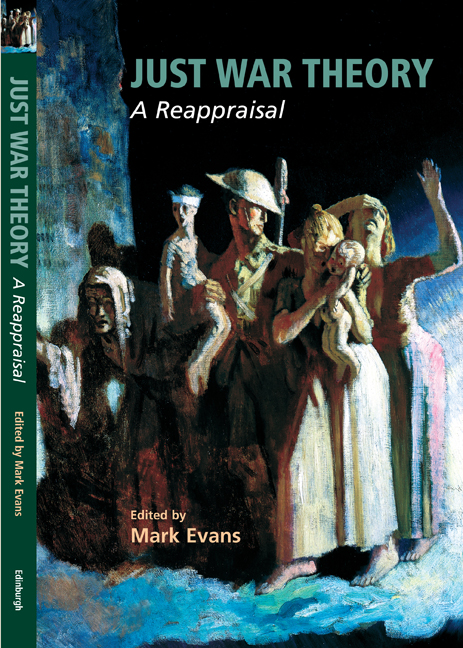Book contents
- Frontmatter
- Contents
- Notes on the Contributors
- Preface and Acknowledgements
- Introduction Moral Theory and the Idea of a Just War
- JUST CAUSE
- 1 The Justice of Preemption and Preventive War Doctrines
- 2 Punitive Intervention: Enforcing Justice or Generating Conflict?
- 3 In Humanity’s Name: Democracy and the Right to Wage War
- JUSTICE IN THE CONDUCT OF WAR
- 4 The Concept of Proportionality: Old Questions and New Ambiguities
- 5 Just War? Just Children?
- 6 Is There a Supreme Emergency Exemption?
- JUSTICE AND THE END OF WAR
- 7 Security Beyond the State: Cosmopolitanism, Peace and the Role of Just War Theory
- 8 Forgiveness and Reconciliation in Jus Post Bellum
- CONCLUSION
- In Defence of Just War Theory
- Bibliography
- Index
8 - Forgiveness and Reconciliation in Jus Post Bellum
Published online by Cambridge University Press: 03 October 2020
- Frontmatter
- Contents
- Notes on the Contributors
- Preface and Acknowledgements
- Introduction Moral Theory and the Idea of a Just War
- JUST CAUSE
- 1 The Justice of Preemption and Preventive War Doctrines
- 2 Punitive Intervention: Enforcing Justice or Generating Conflict?
- 3 In Humanity’s Name: Democracy and the Right to Wage War
- JUSTICE IN THE CONDUCT OF WAR
- 4 The Concept of Proportionality: Old Questions and New Ambiguities
- 5 Just War? Just Children?
- 6 Is There a Supreme Emergency Exemption?
- JUSTICE AND THE END OF WAR
- 7 Security Beyond the State: Cosmopolitanism, Peace and the Role of Just War Theory
- 8 Forgiveness and Reconciliation in Jus Post Bellum
- CONCLUSION
- In Defence of Just War Theory
- Bibliography
- Index
Summary
In this chapter I want to argue that:
[i] A necessary feature of any just peace, particularly in post-civil war situations, is that it is a durable one.
[ii] A particularly significant factor contributing to the durability of a peace settlement is that key publics, communities and opinion leaders believe that the peace is sufficiently ‘just’ as to merit their commitment.
[iii] A necessary element in facilitating the belief that a peace is ‘just enough’ is that the socio-cultural scars left by the war are addressed in a manner such that the pains of the past cease to dominate the present and open up the possibility of future coexistence between former enemies.
[iv] The manner in which such ‘memory’ or ‘forgiveness work’ is carried out will vary from case to case, depending on a number of significant factors, including the balance of power during the post-peace settlement period.
JUSTIFYING THE EVIL OF WAR BY ANTICIPATING A JUST PEACE
In any discussion of the history and the variety of just war thinking it is very important not to lose sight of the core issue which has driven this tradition. War is evil. A particularly strong and clear statement of this view was made by the German writer W. G. Sebald in a discussion of Sir Arthur Harris, commander-in-chief of Bomber Command during the Second World War. Harris, he suggested, liked destruction for its own sake, ‘and was thus in perfect sympathy with the innermost principle of every war, which is to aim for as wholesale an annihilation of the enemy with his dwellings, his history and his natural environment as can possibly be achieved.’ Sebald then went on to cite Elaine Scarry's view that ‘the victims of war are not sacrifices made as the means to an end of any kind, but in the most precise sense are both the means and the end in themselves’. A few pages later Sebald describes the effect of an allied bombing raid on Hamburg.
Residential districts with a street length of 200 kilometres in all were utterly destroyed. Horribly disfigured corpses lay everywhere. Bluish little phosphorous flames still flickered around many of them; others had been roasted brown or purple and reduced to a third of their normal size.
- Type
- Chapter
- Information
- Just War TheoryA Reappraisal, pp. 177 - 200Publisher: Edinburgh University PressPrint publication year: 2020



